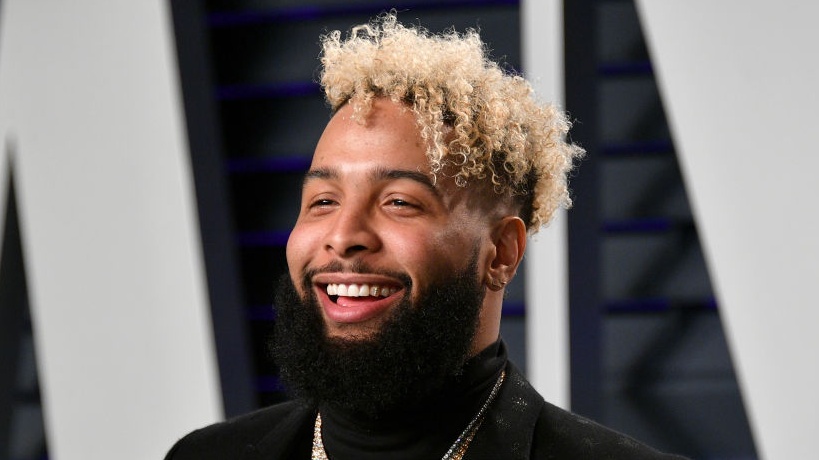Former LSU wide receiver Odell Beckham Jr. celebrated in a unique way after his alma mater beat Clemson on Monday to win the National Championship. The NFL star, who was fired up throughout the game, joined the team on the field after the historic win and appeared to hand out cash to LSU players Justin Jefferson and Jontre Kirklin.
According to The Advocate, an LSU athletic official said the bills were fake, however it was later discovered they were indeed real bills. The school is reviewing the incident to determine whether or not the players violated the NCAA policy which prohibits players from accepting monetary gifts.
The Cleveland Browns star also celebrated with the players in the locker room and continued to push the NCCA's buttons, talking about what he's gonna do with Justin Jefferson's cleats.
"I'm selling these cleats for $200K," the NFL veteran said in a video posted on Twitter.
Odell says he's gonna sell Justin Jefferson's cleats for $200K ???? @brkicks
pic.twitter.com/hsOpQbNWOl— B/R Gridiron (@brgridiron) January 14, 2020
Beckham knows very well that the NCAA doesn't allow the players to sell and profit from their equipment. But he appears to be sending a message in his own way as many others continue to pressure the NCAA to change its policy.
In October, California became the first state to allow college athletes to make money and hire agents.
"Colleges reap billions from student athletes but block them from earning a single dollar. That’s a bankrupt model," California Governor Gavin Newsom said in a tweet. "I just signed the Fair Play to Pay Act with @KingJames — making CA the first state to allow student athletes to profit off their name, image, and likeness."
Colleges reap billions from student athletes but block them from earning a single dollar. That’s a bankrupt model.
I just signed the Fair Play to Pay Act with @KingJames — making CA the first state to allow student athletes to profit off their name, image, and likeness. pic.twitter.com/aWE9OL9r1v
— Gavin Newsom (@GavinNewsom) September 30, 2019
“We must embrace change to provide the best possible experience for college athletes,” NCAA Board of Governors Chairman Michael V. Drake said in a press release. “Additional flexibility in this area can and must continue to support college sports as a part of higher education. This modernization for the future is a natural extension of the numerous steps NCAA members have taken in recent years to improve support for student-athletes, including the full cost of attendance and guaranteed scholarships.”
According to CNBC, the Justice Department’s antitrust chief met with the NCAA in November to discuss changes that would allow players to profit from their name. A source told CNBC that the organization is considering changes to its policy. However, the NCAA said any new policies will be consistent with its bylaws, focusing on “amateurism” and having “a clear line of demarcation between college athletics and professional sport.”
“This NCAA price-fixing is counter to America’s economic principles of free enterprise,” Ramogi Huma, executive director of the National College Players Association, said in a speech in September. “In addition, there is a strong civil rights concern given African Americans comprise a disproportionate percentage of players in Division I revenue-generating teams, yet suffer the lowest graduation rates.”
